
An Israeli army soldier sits in the hatch of the turret of a Merkava battle tank as a column of tanks is amassed in the upper Galilee in northern Israel near the border with Lebanon.JALAA MAREY/AFP/Getty Images
Tensions spiked around Israel on two fronts as the country’s military continued to mass troops ahead of an expected ground invasion of the Gaza Strip and exchanges of fire continued across the northern border with Lebanon.
In the south, Israeli warplanes hammered Gaza, reducing entire buildings to rubble throughout the fourth day of an all-out war that began on Saturday when Hamas, the Islamist militant group that controls Gaza, launched a surprise attack that killed more than 1,200 Israelis. Israeli Defence Minister Yoav Gallant has declared that the country is implementing a “full siege” of the densely packed strip, home to 2.3 million Palestinians.
On Tuesday, the Israeli military escorted journalists into the Kfar Aza kibbutz, one of the Israeli communities briefly taken over by Hamas on the weekend. A Reuters reporter saw the bodies of Israeli residents and dead Hamas fighters lying in the streets amidst burned-out cars and smashed furniture. U.S. President Joe Biden, in a special address on Tuesday, described the Hamas attack as “pure, unadulterated evil.”
The threat of a regionwide war continued to grow on Tuesday as Lebanon’s Hezbollah militia – which, like Hamas, is backed by Iran – fired a guided missile across Israel’s northern border, striking an Israeli military vehicle. After that, Israel shelled a Hezbollah observation post in southern Lebanon. It was the second straight day of tit-for-tat fire across the border, prompting the northern Israeli town of Metula to recommend that its 1,700 residents evacuate.
Mr. Biden appeared to warn Iran against any attempt to intervene in what happens next in Gaza. ”Let me say again, to any country, any organization, anyone thinking of taking advantage of a situation: I have one word. Don’t. Don’t,” he said.
A U.S. naval strike group, headed by the aircraft carrier USS Gerald R. Ford, was ordered to the eastern Mediterranean Sea on Monday in a show of support for Israel. U.S. National Security Advisor Jake Sullivan said the carrier was not meant to send a message to Hamas, but “to other state and non-state actors” that might be seeking to capitalize on the situation.
The fiercest fighting is still in and around Gaza. On Tuesday, Israel said it had finally secured the entire border with the strip, which was breached Saturday morning by groups of Hamas fighters, who went on a daylong murderous rampage in the surrounding Israeli towns and kibbutzes.
At least 900 Palestinians have died in four days of retaliatory Israeli bombing of the strip. International organizations, including the World Health Organization and Doctors Without Borders, called Tuesday for the creation of aid corridors to allow for medicine and other supplies to reach overflowing hospitals in Gaza, which is hemmed between Israel, Egypt and the Mediterranean Sea.
But the situation is more likely to keep deteriorating. With a reported 360,000 Israeli troops massing near Gaza, an Israeli land assault is anticipated in the days ahead, even though any campaign would be complicated by the presence of more than 100 hostages Hamas says it took back to Gaza during the Saturday attack. Lieutenant-Colonel Richard Hecht, a spokesperson for the Israeli military, acknowledged Tuesday that Hamas had “dozens” of hostages.
Mr. Sullivan said that “20 or more” American citizens were missing from Israel, though that does not mean they are all hostages. He said another 14 had been confirmed to have died in the attack. Two Canadian citizens – Alexandre Look of Montreal and B.C. native Ben Mizrachi – were killed in the mayhem, while three other Canadians are believed to be missing.
Lt.-Col. Hecht warned that Israel’s response to Saturday’s attack would not be like previous episodes, in which Israel and the Islamist militia traded calibrated blows before agreeing to ceasefires negotiated by third parties. “This is not a regular event; this is a war,” he said. He said civilians in Gaza should try to flee to Egypt, though the Rafah border crossing – the only way Gazans can get out – was closed on Tuesday.
Hamas continued to fire rockets at Israeli sites on Tuesday, including the southern port of Ashkelon and Ben Gurion Airport, near Tel Aviv, where air raid sirens screamed moments before a series of loud explosions.
Standing outside the main police station in the central Israeli city of Yehud, located on Tel Aviv’s outskirts by the airport, Zehava Sadan hardly flinched as explosions echoed nearby.
The war that has started, the 62-year-old said, should not end until she and her family feel safe going back to their ravaged community on the edge of the Gaza Strip, where her 66-year-old brother Yizhar was murdered Saturday morning outside his home in Moshav Yakhini. Ms. Sadan was at the police station to identify his remains.

Israeli soldiers patrol an area in Kfar Aza, bordering Gaza Strip. Israel pounded Hamas targets in Gaza on Oct. 10 and said the bodies of 1,500 Islamist militants were found in southern towns recaptured by the army in gruelling battles near the Palestinian enclave.JACK GUEZ/AFP/Getty Images
Ms. Sadan, whose parents were born in Yemen and moved to the farming community in the Negev Desert shortly after Israel’s founding in 1948, said she used to feel sympathy for the Palestinians who lived in Gaza, just a few kilometres from Moshav Yakhini on the other side the Israeli-constructed border fence that Hamas tore down. Now she says she can’t stand the sight of them.
“All these years, I felt sorry for them. The women, the children. I didn’t perceive them as murderers,” Ms. Sadan said as another barrage of Hamas rockets was loudly intercepted by Israeli anti-aircraft systems near the airport. “I say no mercy,” Ms. Sadan continued as her 21-year-old son Dor tried to convince her to choose her words carefully. “I don’t want to ever see an Arab ever again.”
Ms. Sadan’s rage captured the national sentiment. A country that a week ago was deeply divided between supporters and opponents of hard-line Prime Minister Benjamin Netanyahu is now united behind the cause of getting revenge for what happened. “We need to attack them with all that we have,” said Shelley Bar El, a 40-year-old mother of two who survived the weekend’s Hamas attack on a music festival in the town of Re’im, where 260 people were killed. She and her husband ran to their car and drove “150 kilometres an hour” through the unfolding horror around them, she said.
Ms. Bar El, who was selling jewellery at the overnight rave in Re’im, said she and her husband, Yoav, had “quietly” supported the months-long mass protests against Mr. Netanyahu’s contentious overhaul of the country’s judicial system. That debate is now on pause. Many of those who were marching in the streets have now joined the military units massing around Gaza.
Even though the Bar Els believe some people they know were among those kidnapped from the rave and taken to Gaza, they say they support whatever the military does next. “We can’t negotiate with terrorist animals,” Ms. Bar El said.
Emotions were equally raw Tuesday in Gaza. In an exchange of messages with The Globe and Mail, Bassem Naim, Hamas’s head of international relations, said the attack on Israel was part of the Palestinian “battle for freedom and independence.” Asked how killing Israeli civilians advanced that cause, Mr. Naim dismissed the question as “Israeli propaganda.”
Ordinary Gazans, who are among the poorest people in the world on a per capita basis, are living and dying with the consequences of Hamas’s assault and the Israeli response. “Many world countries have rushed to condemn the Palestinian blitz into Israel’s south,” said Wageh Abu Zarifa, a Gaza-based academic whose fledgling think tank – the Palestinian Centre for Cultural Dialogue and Development – was destroyed Monday in an Israeli air strike.
In a WhatsApp message, Mr. Abu Zarifa called on the international community to be just as outspoken when it comes to holding Israel accountable for the “atrocities it is carrying out in the Gaza Strip against innocent civilians whose only sin is being Palestinian living under Israeli occupation.”
Gaza was under Israeli military occupation between 1967 and 2005, when Israel withdrew its soldiers and settlers, only for Hamas to seize power in the void that was created. The United Nations still considers Gaza “occupied,” because Israel has maintained control over its airspace and territorial waters, and prevented the Palestinians from building infrastructure, such as a sea terminal or an airport.
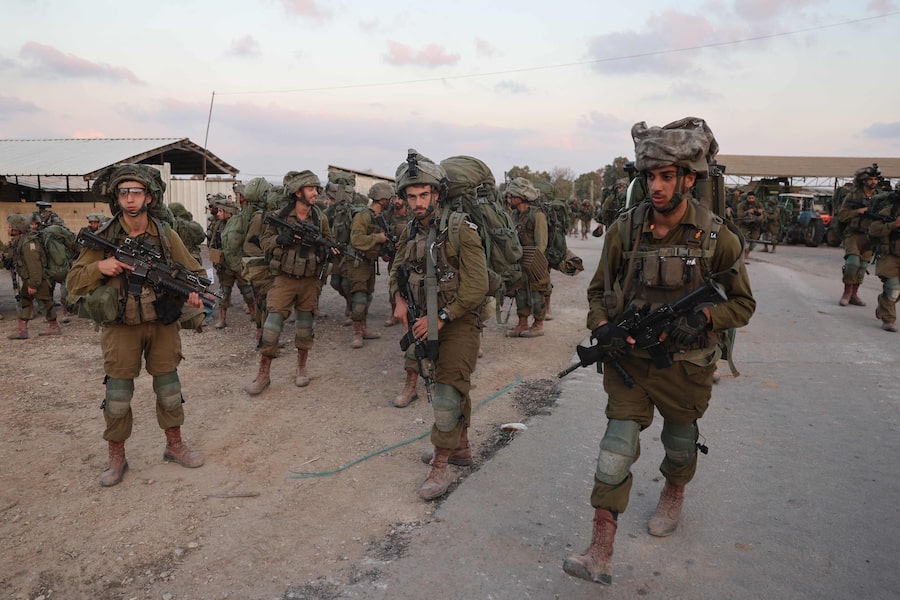
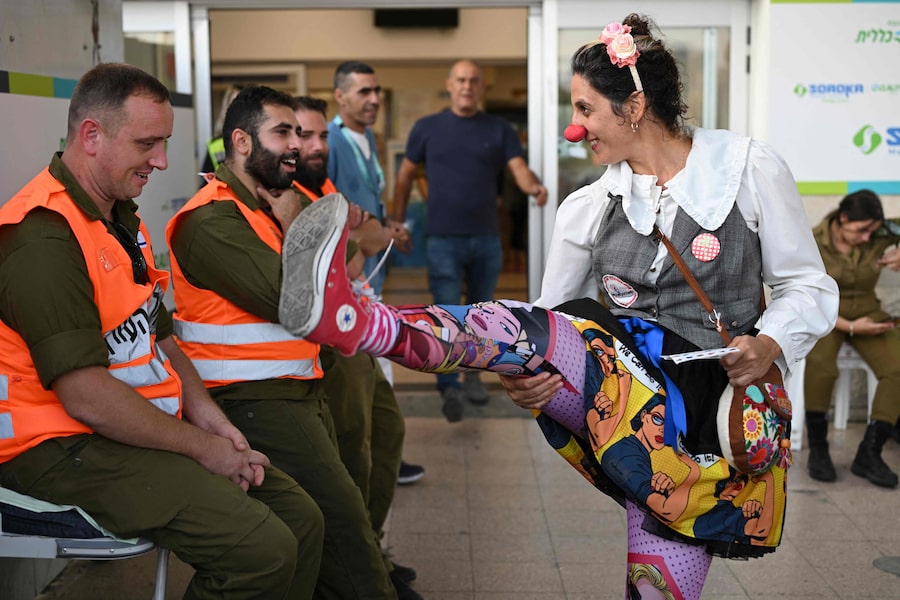
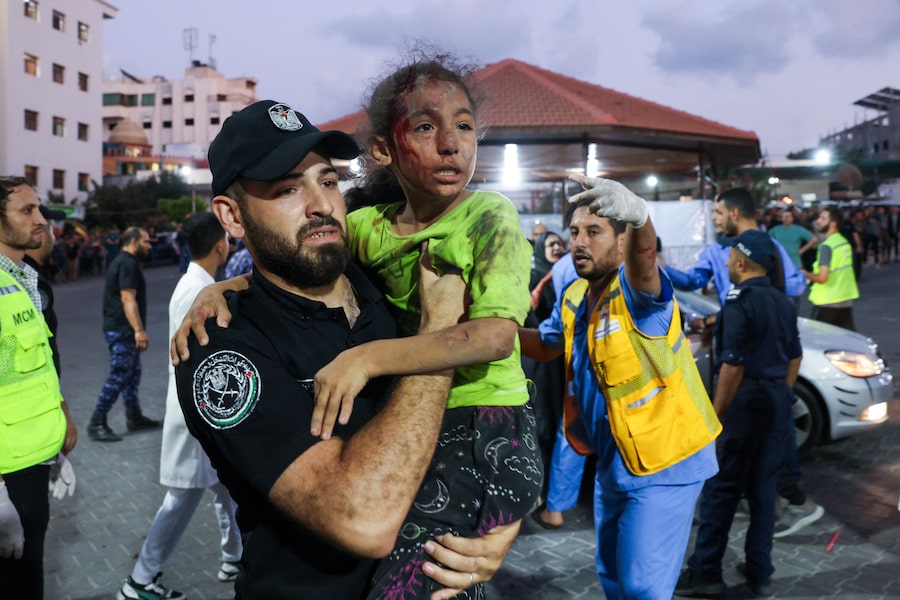
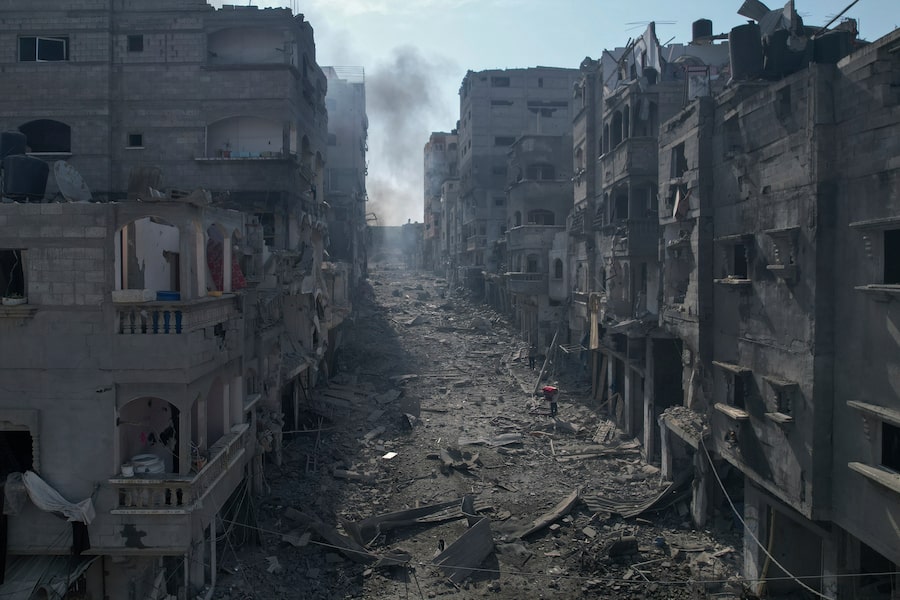
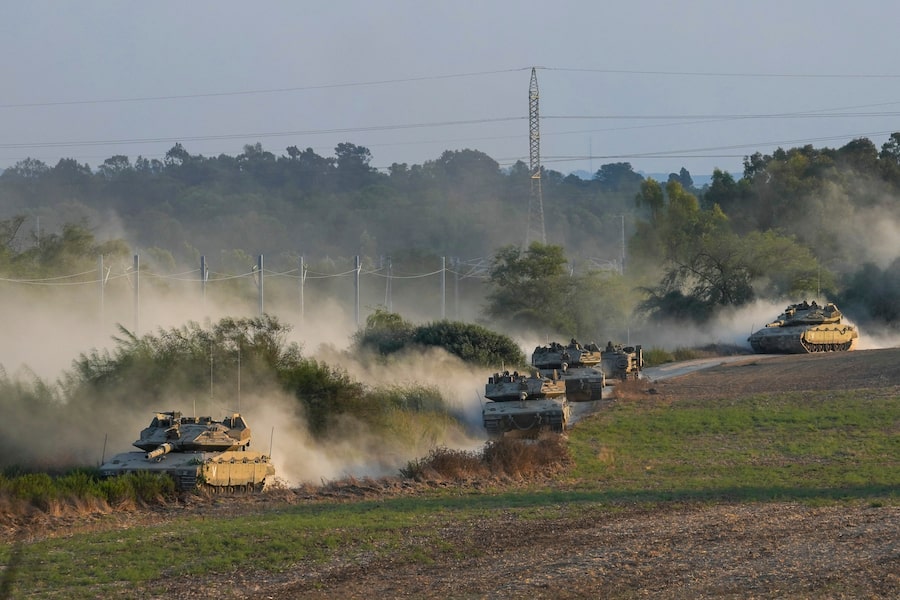
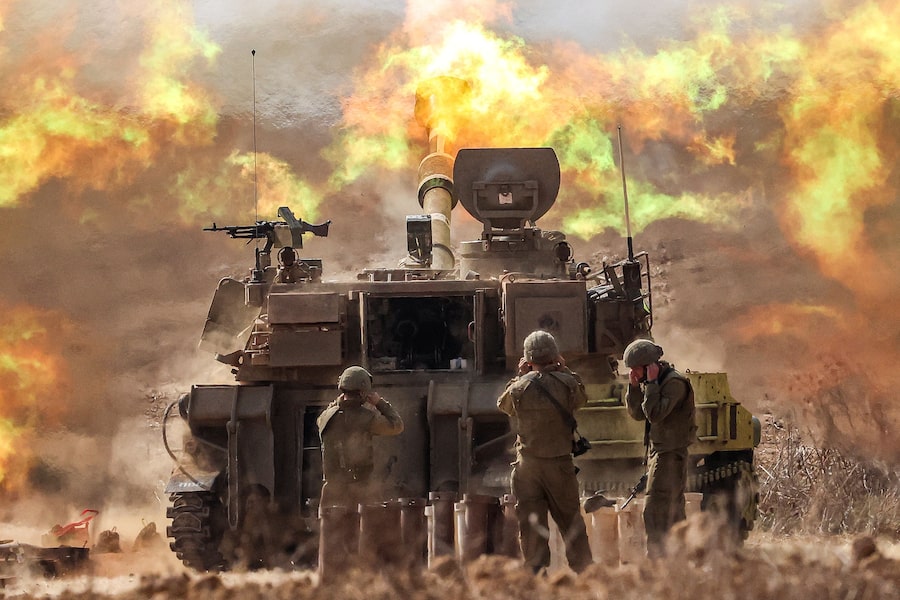
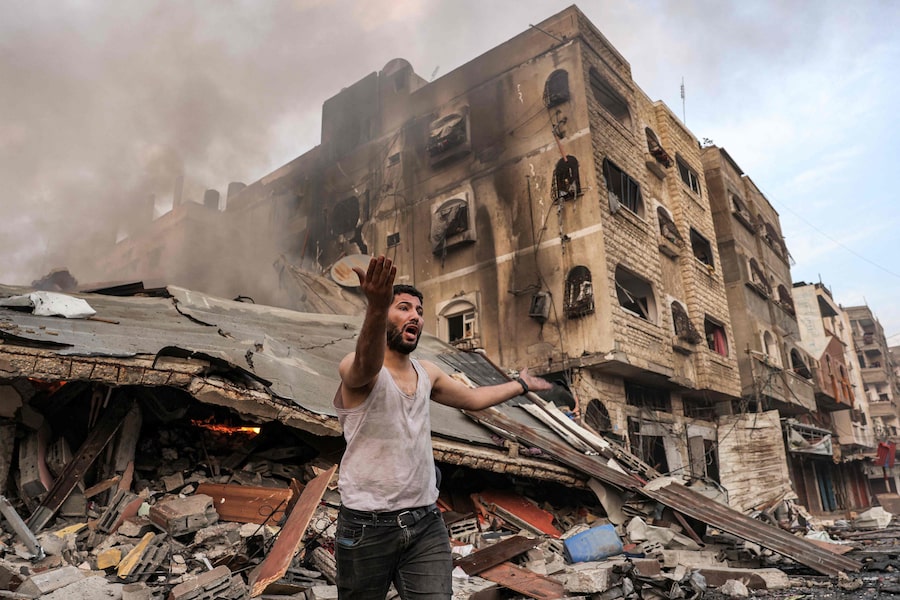
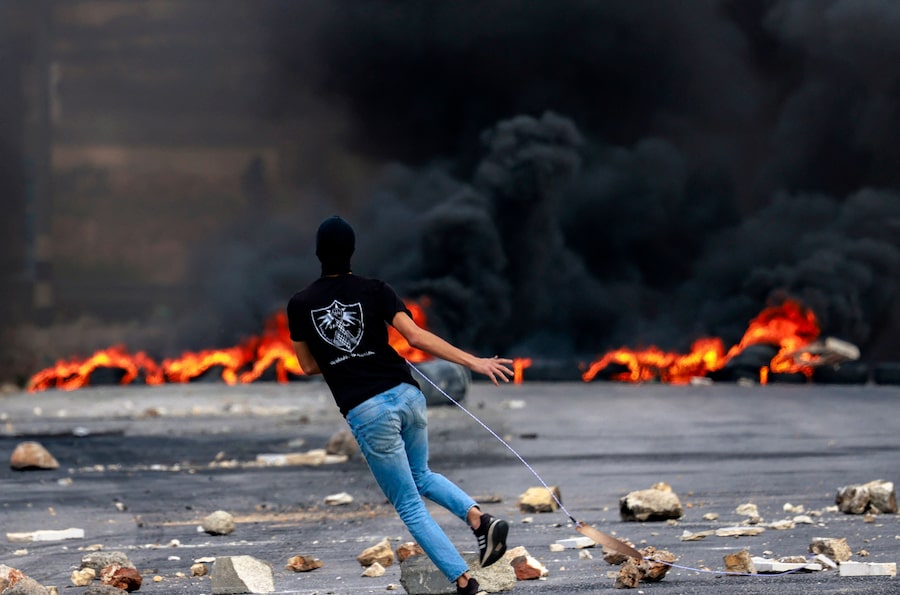
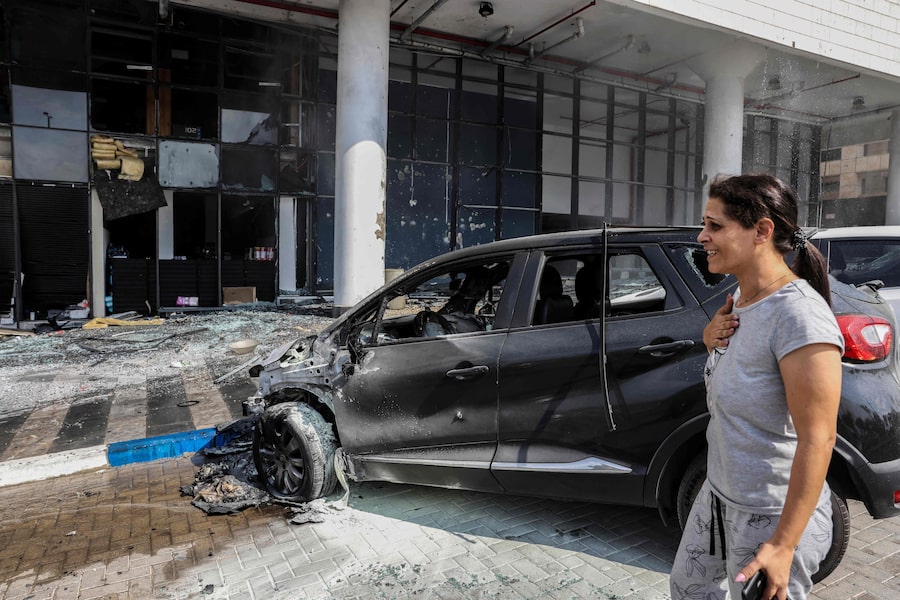
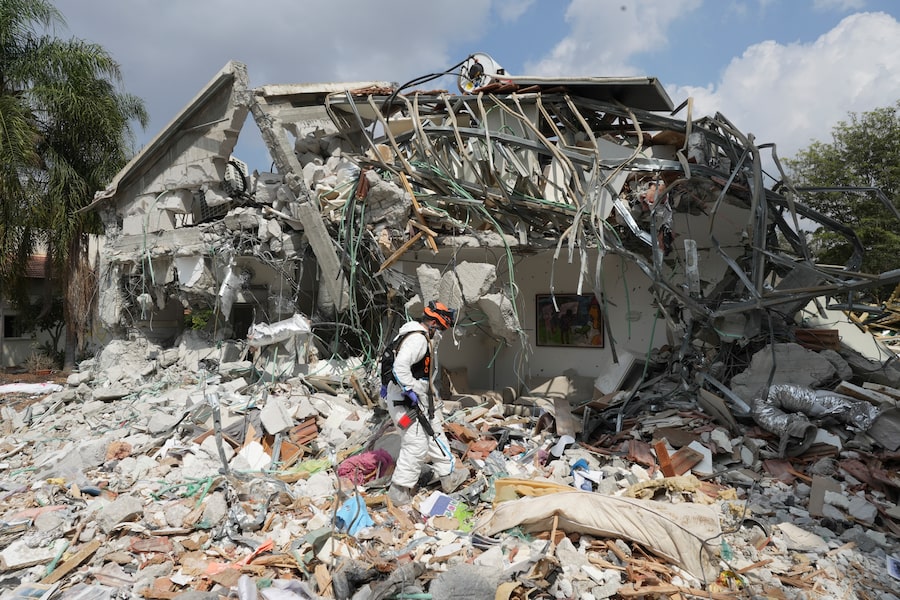
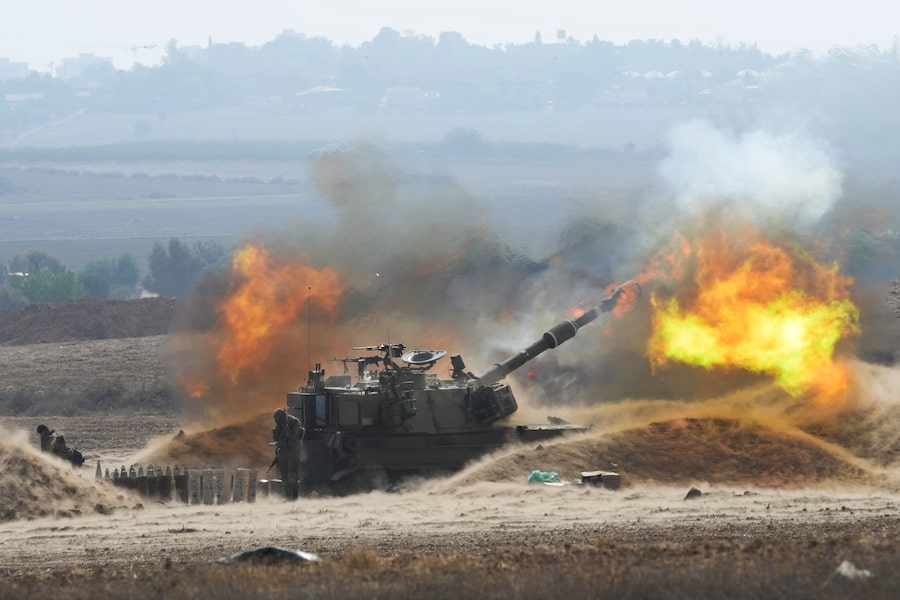
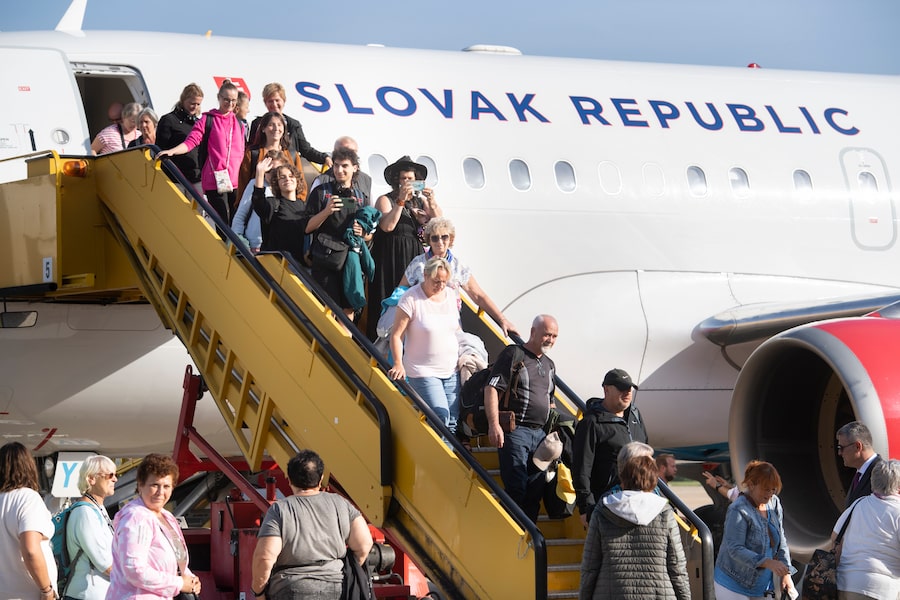
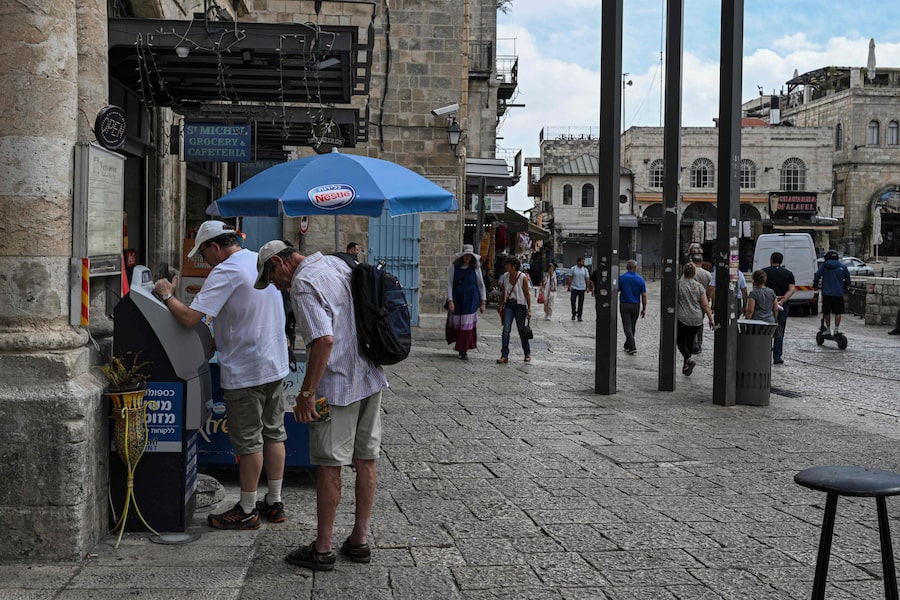
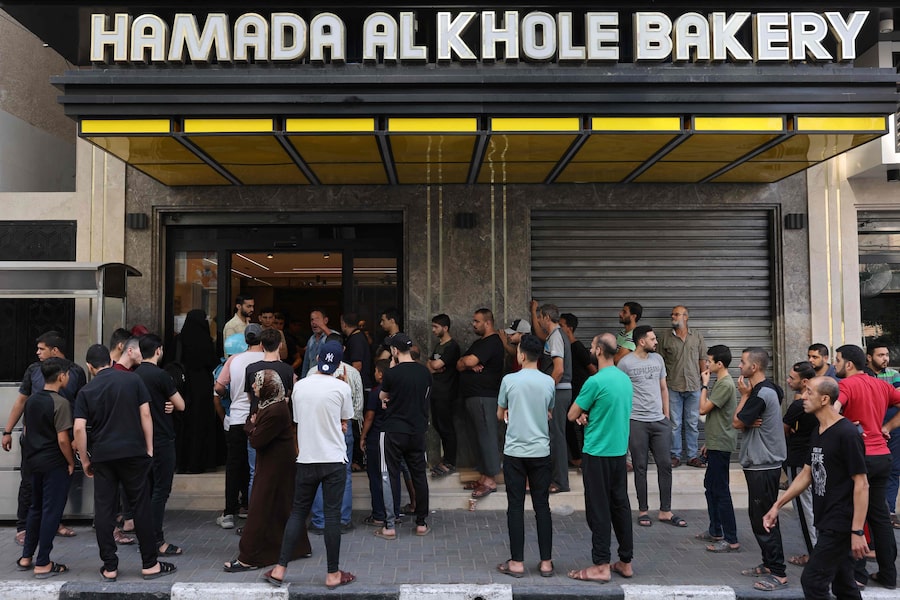
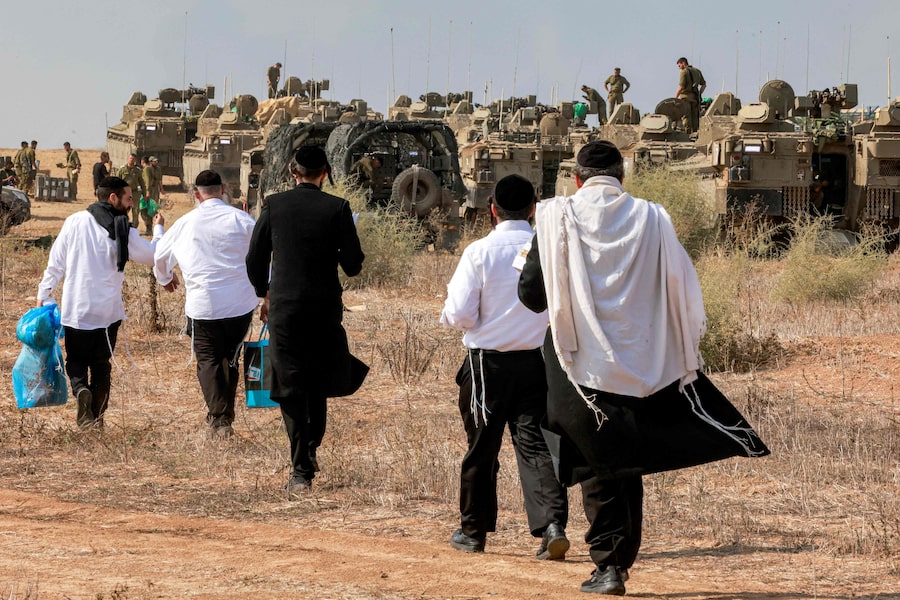
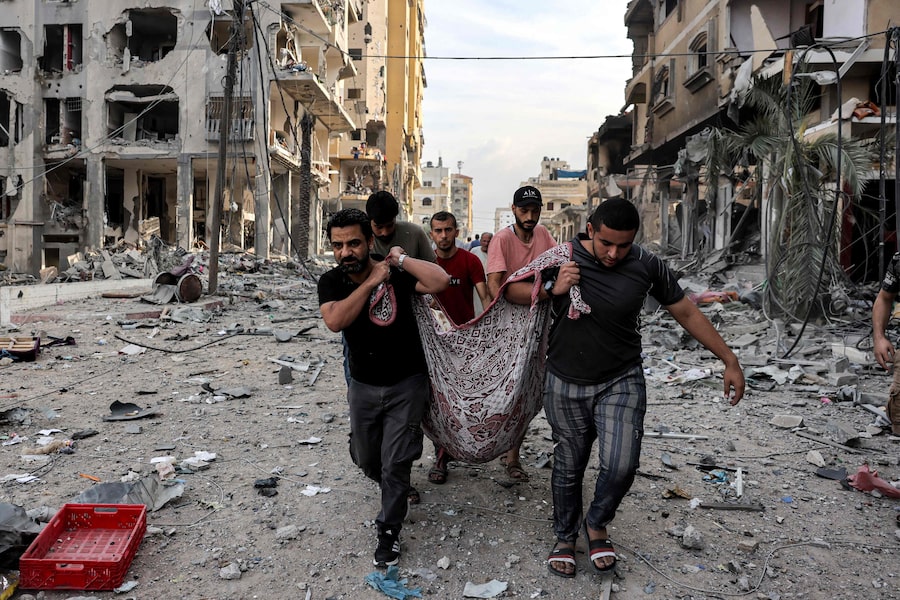
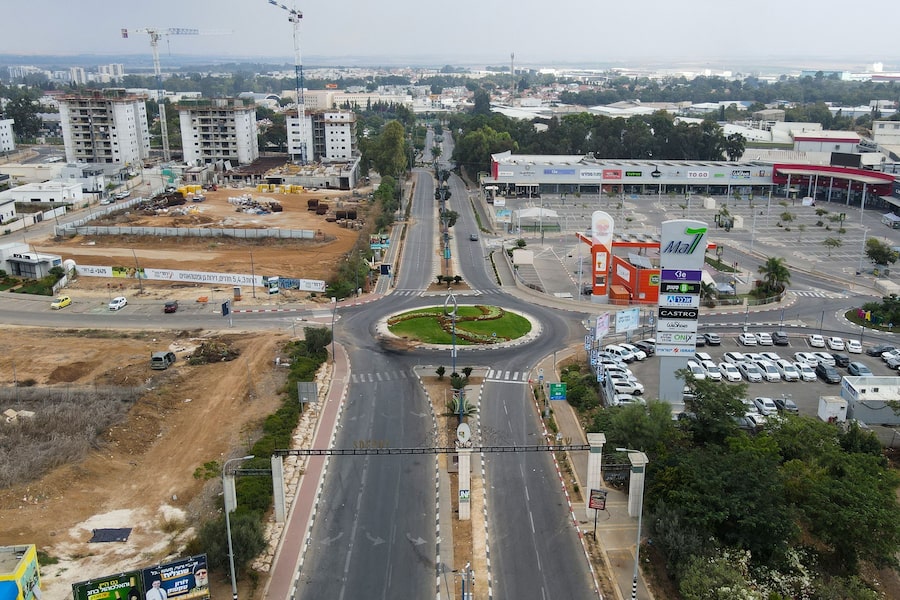
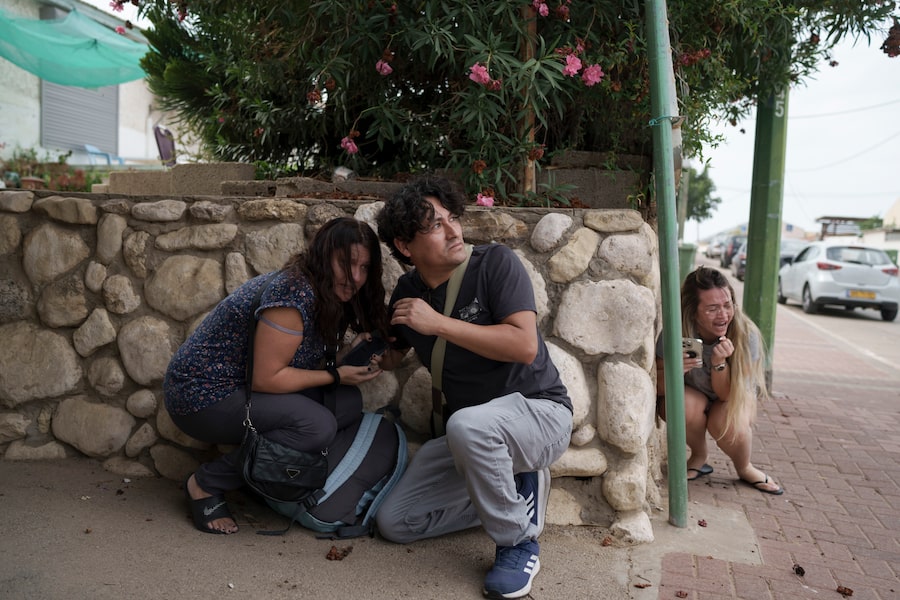
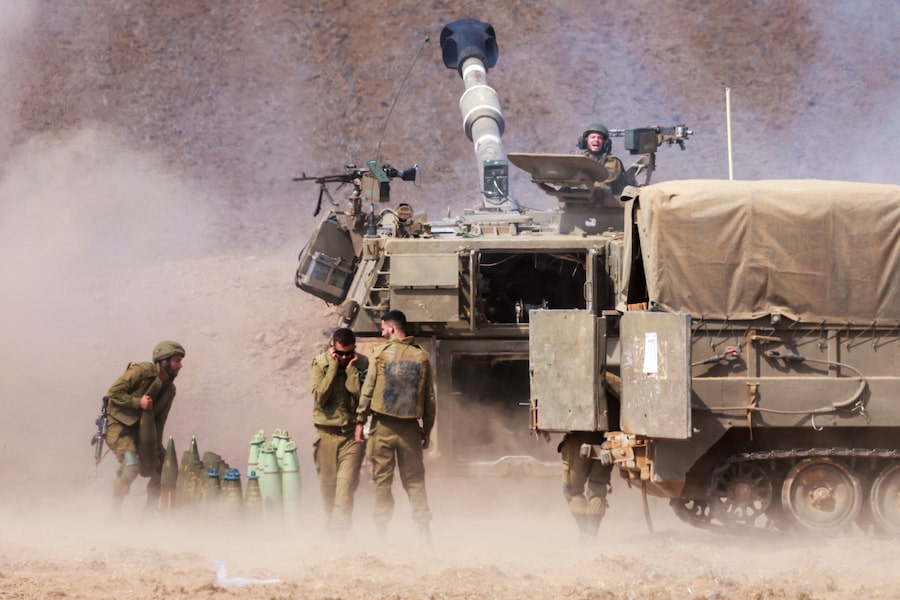
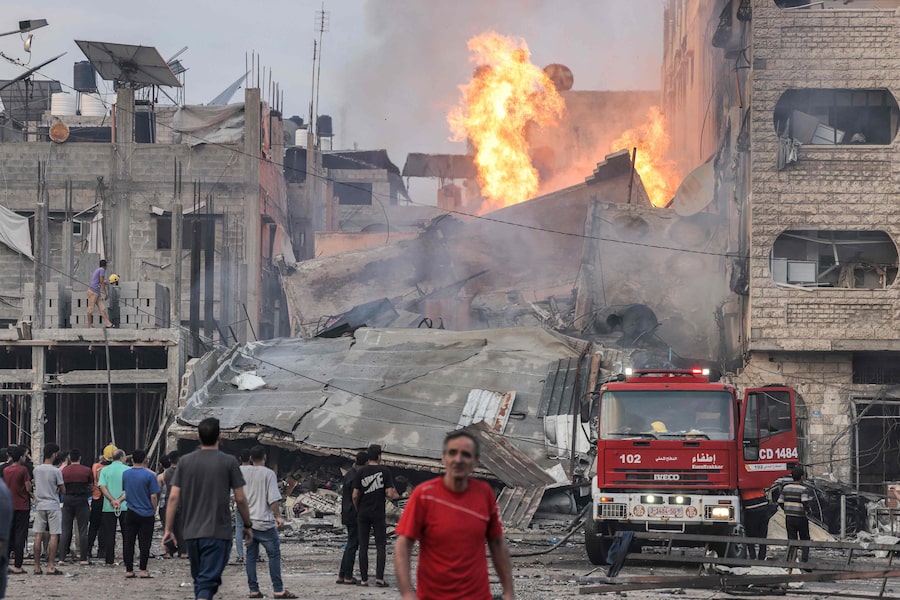
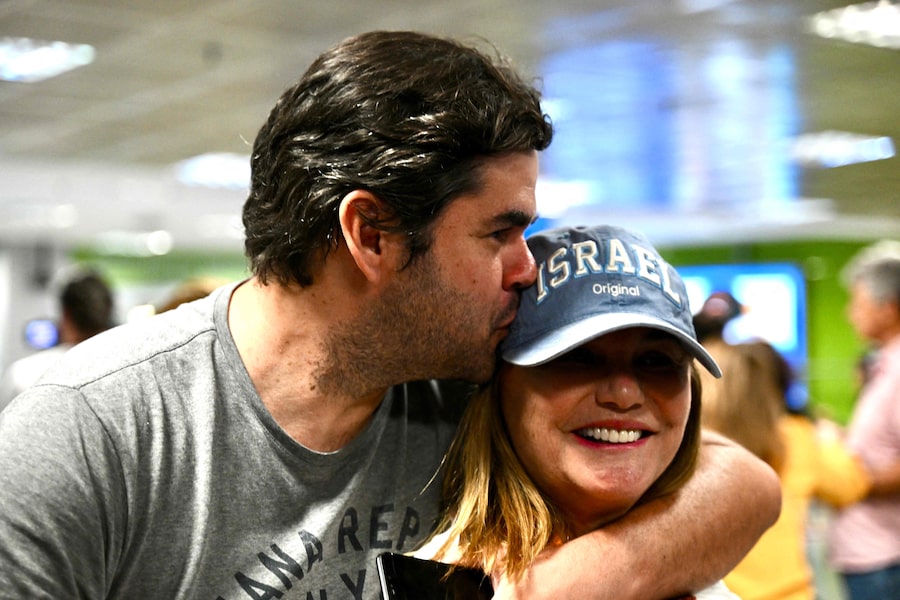
 Mark MacKinnon
Mark MacKinnon